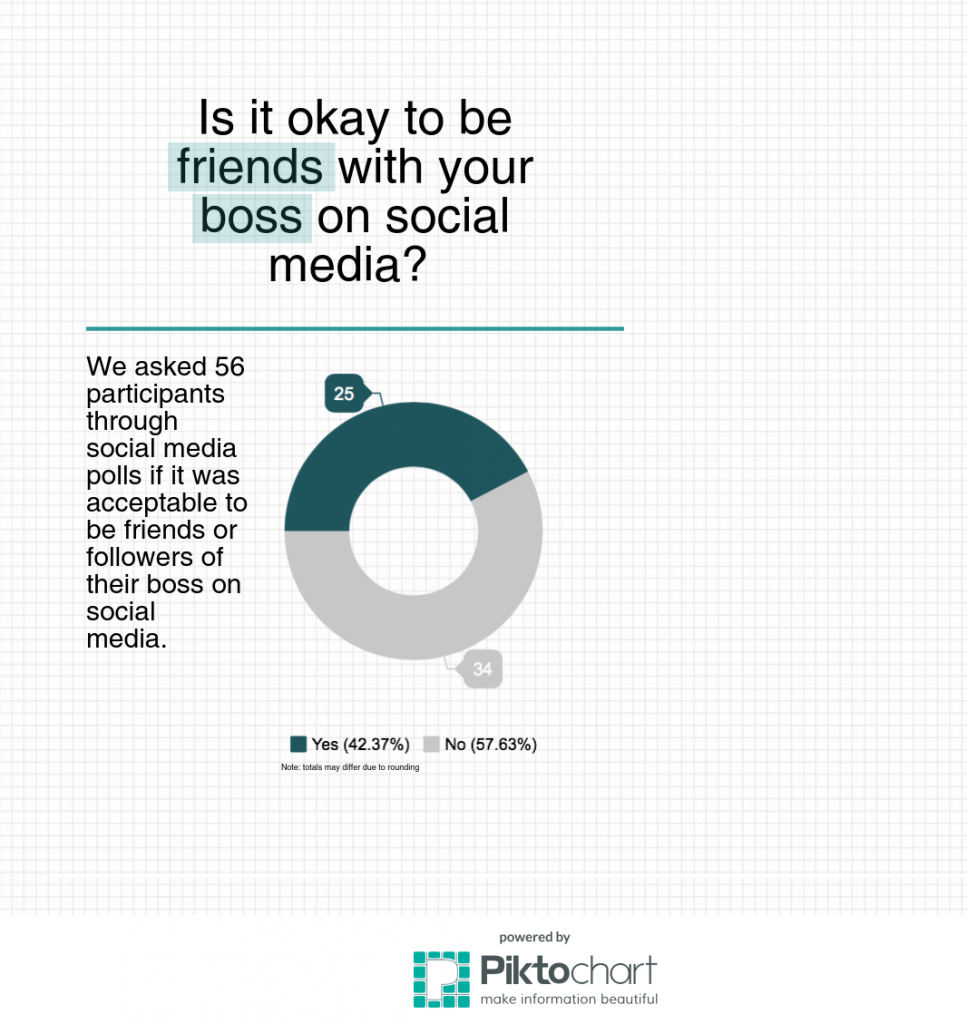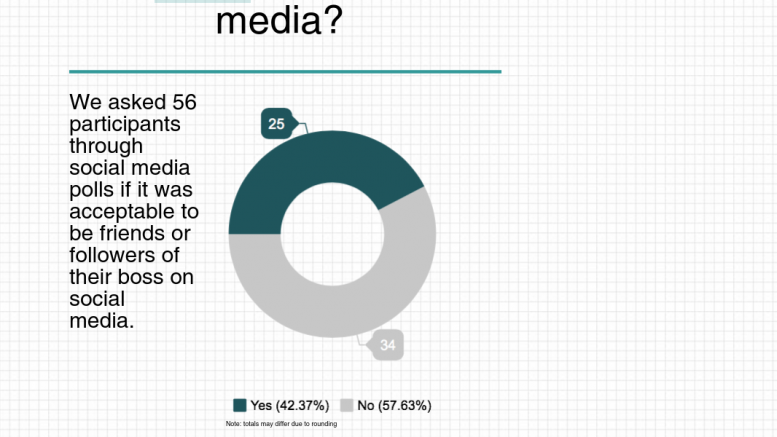Alejandra Chamorro/Contributing Writer
Students and employees might be hesitant to share any part of their online life with the people that only see them in a professional setting, but career coaches say otherwise.
Natalia Farfan, a senior majoring in broadcast journalism, believes that the two aspects of life shouldn’t intertwine.
“Many problems can come from it,” said Farfan. “It’s good to have a separation between business and pleasure.”
Career coaches, like Anamile Buendia, the assistant director for Career and Talent development, disagree. Social media, she said, is crucial for networking.
“We urge students to create an extensive network to expand their possible internships and employment opportunities,” Buendia said.
But even though social media is positively increasing the exposure for future employment, not all sites are made with that purpose. Linkedln, according to Buendia, is the best site to establish professional connections with future bosses and maintain connections with past professors.

Graphic by Nicole Malanga/PantherNOW
“Connecting with a professor is definitely encouraged, on Linkedln,” said Buendia. “But I would not recommend following them on their personal social media pages.”
The problem with accepting a boss or a professor on social media sites such as Facebook and Instagram is the amount of personal information one is able to share. Once you are “friends” with them, you have to be mindful about what you post and what you are tagged in, Buendia said.
It’s also crucial for students to be careful with how they portray themselves on social media, according to Kerri Stone, a law professor at FIU, as once you post something on the Internet, it could always come back to haunt you.
“Items, pictures and information posted online can be expected to resurface throughout one’s life,” said Stone. “Cherish your good name and your privacy.”
Personal sites also generate questions based on whether or not the people you have on social media are your actual friends in real life. This question has also caused some legal issues, according to the Miami Herald.
Circuit Judge Beatrice Butchko was assigned to Herssein
and Herssein v. United Service Automobile Association. This case revolved around Herssein and Herssein, a Miami law firm, who sued its former client, the United States Automobile Association, for fraud and breach of contract. Butchko’s Facebook friend, Israel Reyes, was representing one of the association’s executives.
Their cyber friendship arose questions over if it would allow for a fair trial, the Miami Herald reports, but the appellate court ruled that being “close friends” on Facebook was not enough to prove that they had a close relationship which could cause bias in a court.
Stone agrees with the court’s ruling.
Just because you’re “friends” online, it doesn’t necessarily mean you have an intimate friendship, she said.
“While recusal is necessary when the judge has too close of a friendship with an attorney to avoid partiality or the appearance of impropriety,” said Stone. “It is clear that being friends on Facebook does not necessarily bespeak such a relationship.”
Other courts, however, have ruled differently, such as the 2012 case Pierre Domville v. State of Florida where an appeals court in Palm Beach repealed a judge from a criminal case because he was friends on Facebook with the prosecutor.
While having social media gives us the freedom to express ourselves the way we like, Farfan, Buendia and Stone all agree that people need to be mindful of who their audience is, what they’re posting and how much personal information they are willing to share.





